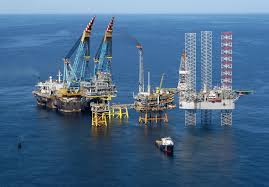 SUMMARY:
SUMMARY:
Making a natural gas demand forecast is much harder than making an electricity demand forecast. Whether a new infrastructure is being built, seasonal/regional differences, the state of the industry and most importantly drought or excessive rainfall always affect demand. Another point to note here is whether the infrastructure of a country has reached its saturation point. When those infrastructures are storage facilities, entry points etc, it may seem trivial, but pumping the initial natural gas to storages and using them in the next calendar year; constructing new long pipelines and filling them with gas has some effects. In this Q report, we will examine drought’s effect on natural gas demand.
METHOD:
Power generation data for 2016 and 2017 were obtained from EXIST (Energy Exchange Istanbul). The average natural gas efficiency of an entire system is assumed as 53%. It is calculated that 1 m3 of natural gas has 10.64 kWh of energy content which converts to 5.6 kWh of electricity with 53% efficiency. Also, a marginal sensitivity analysis was conducted.
ANALYSIS:
According to the data, hydroelectric generation of Turkey in 2017 is 8.79 TWh lower than 2016 which corresponds to 1.55 billion m3 of natural gas. If we assume hydroelectric generation’s deficit is compensated only by natural gas, an additional 1.55 billion m3 of natural gas is consumed in the electricity sector solely by the impact of drought.
This drought may have caused higher electricity demand due to electric water pumps used for irrigation during irrigation seasons. For this, it is necessary to look at regional consumption levels separately. If this was the case, increase in electricity demand for irrigation should be higher than average demand increase of Turkey. However, the increase of total natural gas production is 20 TWh, which is equal to an additional 3.6 billion m3 of natural gas demanded. The more interesting factor in the statistics is that Turkey has became an electricity exporter. Traders, who find electricity generated from natural gas cheaper compared to Bulgaria and Greece, preferred to export domestically produced electricity. The trade is equal to a net change of 5.5 TWh, which is equal to 1 billion m3 of natural gas.
CONCLUSION:
Considering all together, we looked for different answers for single question;
|
+ 1.5 billion m3 |
|
+ 0.6 billion m3 |
|
+ 0.97 billion m3 |
|
– 0.4 billion m3 |
|
– 0.3 billion m3 |
|
+3.6 billion m3 |
All of these calculations do not take into consideration the effects from previous years. Thus, the demand forecast must be focused.
